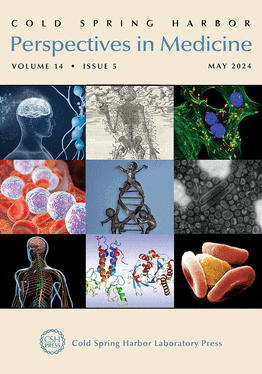Inflammatory β-Cell Stress and Immune Surveillance in Type 1 Diabetes
IF 10.1
2区 医学
Q1 MEDICINE, RESEARCH & EXPERIMENTAL
引用次数: 0
Abstract
Recent years have seen increased recognition for the role of β-cell stress as a contributing factor to the autoimmune destruction process that ultimately results in symptomatic type 1 diabetes (T1D). Preclinical studies have discovered a variety of stress responses in the β-cell that occur at presymptomatic stages and contribute to disease progression, but unifying explanations of how these mechanisms operate to promote disease progression remain incomplete. We propose that stressed β-cells transition into β-cells expressing inflammatory molecules that provoke an immune response to restore homeostasis by coordinating islet repair and the removal of stressed cells. However, when immune surveillance fails, stressed β-cells accumulate and contribute to autoimmunity. Therapies directed toward stressed β-cells to either curb their inflammatory signaling or to eliminate them (essentially doing the job of the failed immune surveillance) are moving from animal models into the clinic with promising initial results, although the understanding of how the immune response is coordinated by stressed β-cells is not clear. In this article, we discuss β-cell stress responses implicated in T1D pathogenesis based on evidence from humans and highlight existing knowledge gaps in their mechanisms. Future work in this field is poised to target T1D by simultaneously targeting stressed β-cells and the failed immune response to halt the progression of autoimmunity and prevent β-cell destruction.1 型糖尿病的炎性 β 细胞应激和免疫监视
近年来,人们越来越认识到β细胞应激反应是导致自身免疫破坏过程的一个因素,最终导致有症状的 1 型糖尿病(T1D)。临床前研究已经发现了β细胞中的多种应激反应,这些反应发生在无症状阶段并导致疾病进展,但对这些机制如何促进疾病进展的统一解释仍不完整。我们提出,受压的β细胞转变为表达炎症分子的β细胞,这种炎症分子会激起免疫反应,通过协调胰岛修复和清除受压细胞来恢复平衡。然而,当免疫监视失效时,受压的β细胞会积聚起来,导致自身免疫。针对应激β细胞的疗法可抑制其炎症信号传导或清除它们(基本上完成了免疫监视失败的工作),这些疗法正从动物模型进入临床,并取得了令人鼓舞的初步成果,尽管人们对应激β细胞如何协调免疫反应的认识还不清楚。在这篇文章中,我们根据来自人类的证据讨论了与 T1D 发病机制有关的 β 细胞应激反应,并强调了其机制方面现有的知识空白。该领域未来的工作将同时针对受压的β细胞和失败的免疫反应,以阻止自身免疫的发展并防止β细胞的破坏,从而达到治疗 T1D 的目的。
本文章由计算机程序翻译,如有差异,请以英文原文为准。
求助全文
约1分钟内获得全文
求助全文
来源期刊

Cold Spring Harbor perspectives in medicine
MEDICINE, RESEARCH & EXPERIMENTAL-
CiteScore
14.30
自引率
1.90%
发文量
44
审稿时长
4-8 weeks
期刊介绍:
Cold Spring Harbor Perspectives in Medicine is a monthly online publication comprising reviews on different aspects of a variety of diseases, covering everything from the molecular and cellular bases of disease to translational medicine and new therapeutic strategies.
Cold Spring Harbor Perspectives in Medicine is thus unmatched in its depth of coverage and represents an essential source where readers can find informed surveys and critical discussion of advances in molecular medicine.
 求助内容:
求助内容: 应助结果提醒方式:
应助结果提醒方式:


